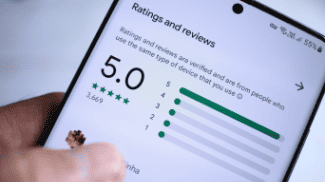What Does Today’s Student Housing Say About Tomorrow’s Apartment Renters?
Understanding Gen Z’s preferences can provide insights for apartment operators.
While it’s crucial for apartment operators to meet modern-day renters where they are, it’s equally essential to anticipate the ways renter behaviors will morph moving forward. So how can operators gauge what’s next?
For perhaps the most accurate depiction of what to expect in the coming years, they can examine the student housing sector. These students represent the next wave of conventional renters, after all, so their unique preferences and behaviors should not be overlooked.
“These are the renters of tomorrow, and analyzing their tendencies is the best form of market research any conventional operator could ask for,” says Virginia Love, industry principal for Entrata. “While they might be similar to their predecessors on the surface, Gen Z renters exhibit an abundance of behavioral nuances previously unseen in the industry. If operators can cater to these distinctive traits, they’ll have a better chance at attracting these renters and providing them with their desired experience.”
A Need for Authenticity

“The fastest way to turn off a Gen Z renter is to go straight to the sell,” says Bradley Shaw, senior director at Greystar, which manages 81,000 student housing beds across the U.S. “We must earn their trust.”
Gen Z, those born after 1996, represents the first generation to grow up exclusively in the digital age. According to data compiled by Entrata, 74% of Gen Z individuals spend their free time online, and 85% use social media to learn about new products. A time without widespread internet access and cellphones didn’t exist for these individuals, who are twice as likely than their millennial predecessors to shop on mobile devices.
As the most ethnically diverse generation, Gen Z individuals are often strongly driven by diversity and social justice initiatives in addition to other causes. More than any other generation, transparency is vital to them.
The desire for authenticity extends to their experiences on social media. While Gen Zers have a heavy presence on platforms such as Instagram and TikTok, apartment operators must strike the balance of not overreaching on these platforms. Two 58-year-olds doing the renegade to Olivia Rodrigo’s new track won’t scream “we’re hip so you should rent here.”
“One thing that’s going to turn a Gen Z renter off is if you’re obviously trying too hard,” says Ashly Poyer, vice president of sales and marketing at PeakMade Real Estate, which oversees more than 70 student housing properties in the U.S. “Not every social trend is something you should jump on. Know your niche. While imitating the latest dancing fad might be fun for your teams, it doesn’t really play that well to Gen Z. Instead, use platforms like TikTok to showcase what type of lifestyle they would experience at your community.”
That includes showcasing some of the spaces that specifically complement the Gen Z lifestyle. While many amenities—such as a swimming pool and a rooftop deck—are universally liked, Gen Z renters crave flexible spaces where they can digitally compose YouTube videos or other social snippets. That includes podcast rooms or other DIY spaces, which cater to Gen Z’s propensity to have something of a side hustle, often in the digital realm. The generation also is eager to develop its financial profile, so ancillary financial services such as rent credit reporting and down payment alternatives are increasingly appealing.
Not surprisingly, the generation is the most agile to date in its ability to keep pace with technological innovations. As such, conventional property managers will also be required to stay on top of technology or risk losing out on potential renters.
“Because Gen Z is the first fully digital generation, they will be looking for high-tech housing options when they enter the conventional market,” Shaw says. “Health and wellness-related amenities will continue to be important to these unique renters, including modern fitness spaces with fitness on demand, meditation spaces, and flex spaces for yoga and Pilates. Makerspaces are also popular, and tomorrow’s Gen Z conventional renters value access to customizable amenity spaces.”
Because they spend so much time on social media, Shaw notes that operators should “think like an influencer and speak their language.” While many longstanding marketing strategies have stood the test of time, many of those tactics fall flat with the most diverse generation in history. Since much of student leasing takes place online, sight unseen, operators must meet the audience where they are present—which means focusing most, if not all, marketing efforts on social media.
Free Rental Application
Get 20 Rental Forms for FREE, including a rental application.
The Importance of Word of Mouth
Beyond the digital realm, Gen Z individuals crave a sense of community and rely on the recommendations of their peers. As such, online reviews play a huge role in influencing renter decisions. These renters don’t necessarily gravitate to the biggest and the best communities because they are often more interested in a brand’s values and beliefs, which often can be underscored in reviews and how a property responds to them.
“This underscores the importance of online reputation and effectively managing online reviews,” Shaw says. “Gen Z students require immediate feedback, which is something that differs greatly from previous generations. What this means for owners and operators of conventional multifamily properties is they will need to respond quickly to an ever-changing list of expectations.”
PeakMade operates both student housing and conventional communities, which has given Poyer a unique perspective. She noticed that average benchmark scores from surveys were lower for Gen Z renters as opposed to conventional renters, so she first wondered whether it was specific to her company or an industrywide trend.
“We worked with our survey partners to find out, and it turns out it’s industrywide,” Poyer says. “We discovered that Gen Z renters tremendously value their space, and they’re not willing to compromise for a good deal or be pleased with a concession after a poor negative experience. Their expectations are higher, and they take a practical approach to their spending compared to previous generations.”
That said, Poyer notes Gen Z renters become extremely loyal when their experience meets expectations. Because word of mouth is so vital to the generation, happy renters essentially become brand ambassadors. Industry data has repeatedly demonstrated that word of mouth is a more prominent factor than any digital advertising campaigns or rent specials.
“They trust the referrals because they know they’re based on actual experiences and they are not being incentivized,” Poyer says. “If you’re not on the list of communities they receive from a peer, they’re not going to tour you and they’re not going to call you. They’re not going to search you.”
Gen Z is the largest, most diverse and arguably the most unique generation ever to enter the rental landscape. As the apartment world constantly aims to prepare for what’s next, a detailed observation of today’s student renters can serve as a pivotal way to glean those insights and prepare for the apartment renters of tomorrow.
Source: Multifamily Executive















 Accessibility
Accessibility